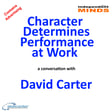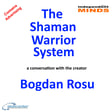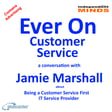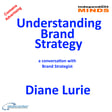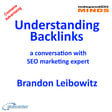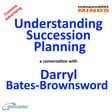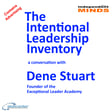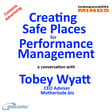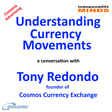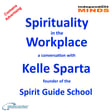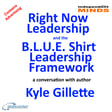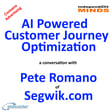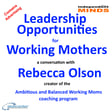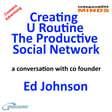
What if Culture was the Strategy – a conversation with Rob Lion
Rob Lionis the founder of Black River Performance Management and a Professor of Human Resource Development at Idaho State University.
Rob is dedicated to helping organisations build cultures that foster employee well-being whilst supporting the achievement of organisational objectives.
In this episode of the Abeceder podcast The Independent Minds, Rob Lion and host Michael Millward discuss what if the culture was the strategy.
They start by acknowledging that every organisation regardless of the leaders attempts to manage culture has a culture.
Rob identifies the different drivers of culture, and the consequences of leaders not proactively managing culture.
Michael and Rob discuss the different elements of culture, from how language is used to the behaviour of leaders and how they contribute to the development of culture.
They reflect on the role culture plays in the successful completion of strategies.
Their discussion covers the pros and cons of changing how we refer to groups of employees.
The Independent Minds is made on Zencastr, because as the all-in-one podcasting platform, Zencastr really does make creating content so easy.
If you would like to try podcasting using Zencastr visit zencastr.com/pricing and use our offer code ABECEDER.
Travel
Rob Lion is based in Idaho, USA. With discounted membership of the Ultimate Travel Club, you can travel to Idaho or anywhere else at trade prices on flights, hotels, trains, and so many more travel related purchases.
Fit For Work Look after your health and you will be fit for work.
We recommend The Annual Health Test from York Test; a 39-health marker Annual Health Test conducted by an experienced phlebotomist Hospital standard tests are carried out in a UKAS-accredited and CQC-compliant laboratory.
A secure Personal Wellness Hub provides easy-to-understand results and lifestyle guidance
Visit York Test and use this discount code MIND25.
Three the network Visit Three for information about business and personal telecom solutions from Three, and the special offers available when you quote my referral code WPFNUQHU.
Being a Guest
We recommend that potential guests take one of the podcasting guest training programmes available from Work Place Learning Centre.
We use Matchmaker.fm to connect with potential guests If you are a podcaster looking for interesting guests or if you have something interesting to say Matchmaker.fm is where matches of great hosts and great guests are made. Use our offer code MILW10 for a discount on membership.
We appreciate every like, download, and subscriber.
Thank you for listening.
